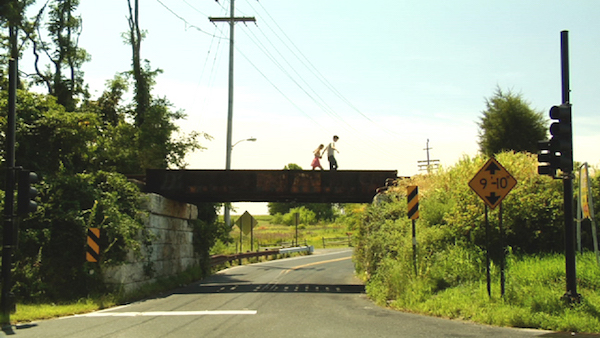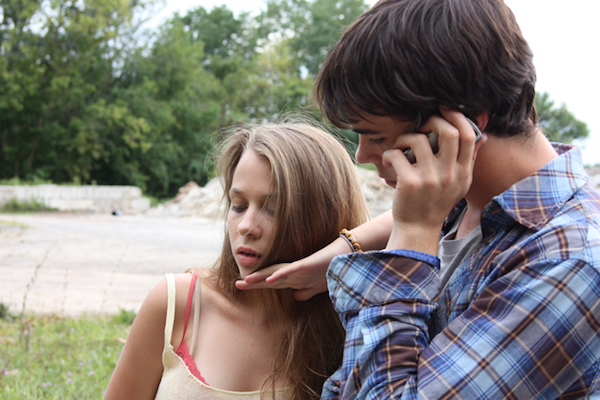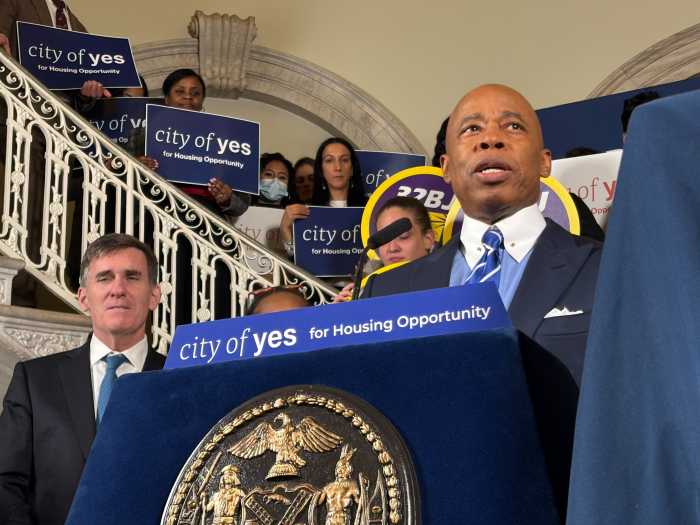
BY JANE ARGODALE | There are, as the narrator of a TV series once told us, “eight million stories in the naked city” — and even more can be found if you take into account the parallel lives led by working artists with full-time jobs. Thus, by day, residents of an apartment building in the West 50s are regularly greeted by their doorman, Eric Chaney — a screenwriter and director whose 2012 debut, “Indigo Children,” will be released on iTunes on Aug. 23, and other online platforms, including Amazon, on Oct. 4 (see indigochildrenfilm.com).
The film, which tells a story of young love between a teenage boy and girl from broken homes in a rural town, had a festival run in 2012, as well as a theatrical release at Greenwich Village’s Quad Cinema in 2014.
Chaney, who grew up in Freehold, New Jersey and got his BFA in screenwriting at SUNY Purchase, has been working as a doorman for the last decade, and has been at his current building in the west 50s for four years. Though he is now a full-time, union doorman, he started out working part-time, at a job he got largely by chance.
“There was one building that needed someone to work the Sunday shift,” Chaney recalled, “and my friend told me that he could more than likely get me the job if he wanted to… at the time I was working as a screenplay reader and he kind of said that, ‘Oh, you know you could probably read a bit when you’re there, and the pay was pretty good.’ ” Of course, Chaney said, “Like any job, it’s a job,” but the work itself was enjoyable. “It’s been great, very eclectic mix of people. You meet the same kinds of people that you’ll meet in New York, you know, from all walks of life, when you’re doing a job like that.”

Balancing that work with the demands of being a filmmaker has proven to be a challenge for Chaney, especially while making “Indigo Children,” which was filmed over four-and-a-half weeks on an “accrued vacation” in a handful of towns in central New Jersey, and largely financed by Chaney himself, with a budget of $50,000. During preproduction and postproduction, he was working 49 hours a week as a doorman. “It goes quickly,” Chaney said of the movie’s budget, partially spent on hiring a private freight train for the many scenes where the film’s two main characters watch trains pass through their town — in one scene, placing objects on the tracks to see what happens to them, and, in another, spray-painting one of the cars.
“Indigo Children” follows the romantic relationship of teenagers Mark and Christina, who are drawn to each other in the midst of loss in both of their families. Set in a rural town, the film has an incredibly strong sense of place, with sweeping landscape shots of trains, rivers, and forests. “I wanted nature to be a character in the film,” Chaney explained, describing the natural beauty of the landscape as “intoxicating” for him after spending a long time in the city.
Chaney calls his driving force in filmmaking “that euphoric moment of discovery,” that he found at every step in the process of making “Indigo Children,” from the writing of the screenplay to the editing and postproduction. While writing the film, Chaney said he took inspiration “from being in love for the first time when you were around that age in New Jersey,” and though the film isn’t autobiographical, he also drew inspiration from the skateboard culture he spent his teenage years in, where most people (excluding him) came from broken homes.

“There’s a complete divide between the adult world and the world that the young people live in,” Chaney said of his impressive feature debut, whose few scenes featuring adults — Mark’s mother grieving for his deadbeat (now-dead) father, his friend Armand yelling at his mother to take him with her as she drives off — speak to a basic unawareness of the inner lives of their children.
Chaney is looking forward to future projects, with what he calls a “psychological, spiritual, dramatic thriller” coming next on his to-do list. Though it’s been challenging balancing the many different kinds of work he does, he’s optimistic. “I want to tell the truth about how the hardships can get you as an artist,” he said, “but a lot of great things happen too. A small movie like this playing at some festivals, getting a theatrical release, iTunes, this is all very exciting to me and I’m very grateful — and even more excited about the next film.”




































